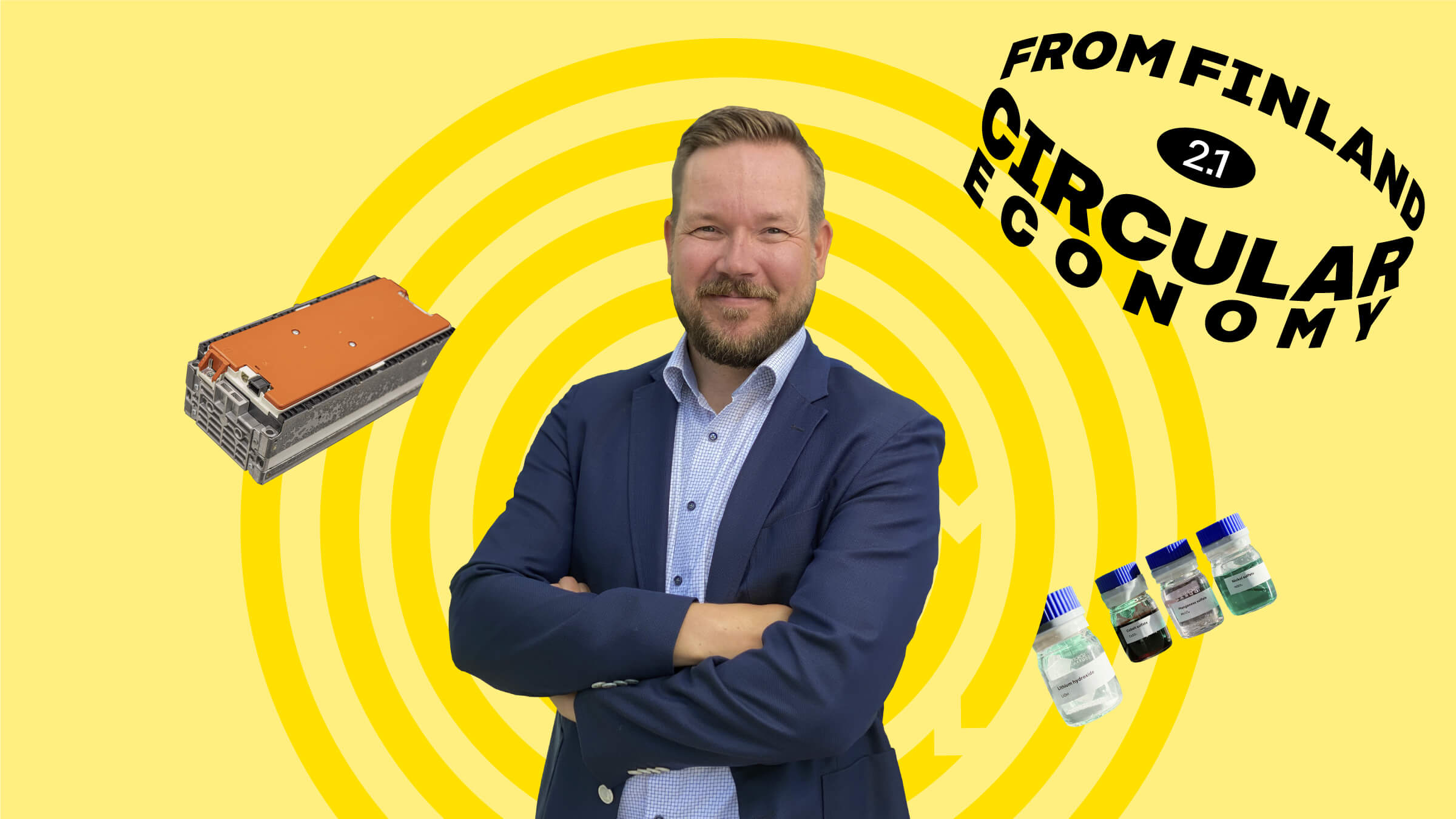“The world is become increasingly electrified. As many car manufacturers have announced that they are in the process of phasing out combustion engines, the need for batteries will continue to grow in the future. The coming years will see a shortage of metals used in electric car batteries, including lithium, nickel and manganese.
The good news is that there are already lots of batteries in the market, and the valuable metals that these contain will be reusable as long as they are collected and recycled correctly. Here at Fortum, we are collecting lithium-ion batteries from industry that are at the end of their life cycle or discarded during production. We recover the valuable metals from the batteries, process them into high-quality raw materials, and return these to battery manufacturing.
The manufacturing of new batteries is a long process in which every step generates some waste. We also recover this waste. In addition, we utilise the side streams from the mining and metal industries. This means that in addition to producing recycled battery materials, we also offer a recycling service for industrial surplus.
About two years ago, Fortum bought Crisolteq, a company specialised in hydrometallurgical recycling of battery metals. Fortum’s low Co2 recycling solution is based on a combination of mechanical and hydrometallurgical processes. We isolate the ‘black mass’ from mechanically crushed batteries from which we can recover valuable battery metals through hydrometallurgical processing. Our process is safer and causes fewer emissions than old battery metal recycling processes. We can recover a large share of valuable metals and sell high-quality raw materials back to battery manufacturers.
Electrification is a megatrend that Fortum had recognised years ago. We are doing things at just the right time. For example, real efforts to recycle were only made as a response to widespread public discussion on plastics ending up in the sea, even though the related technology had already been developed before. We aim to work with an anticipatory approach to battery recycling.
A soon-to-be-adopted EU Battery Directive requires that a certain share of the raw materials in new batteries is recycled. Once the new legislation enters into force, we will already have the necessary processes and technologies ready and in place.
The recycling of batteries is particularly exciting as it provides a major opportunity for Finland’s economy and employment. Our team has industry-best experts involved in research and product development. We are at the forefront of creating a new industrial sector in Europe based on the circular economy.”

















Suosittelemme
Vielä yksi